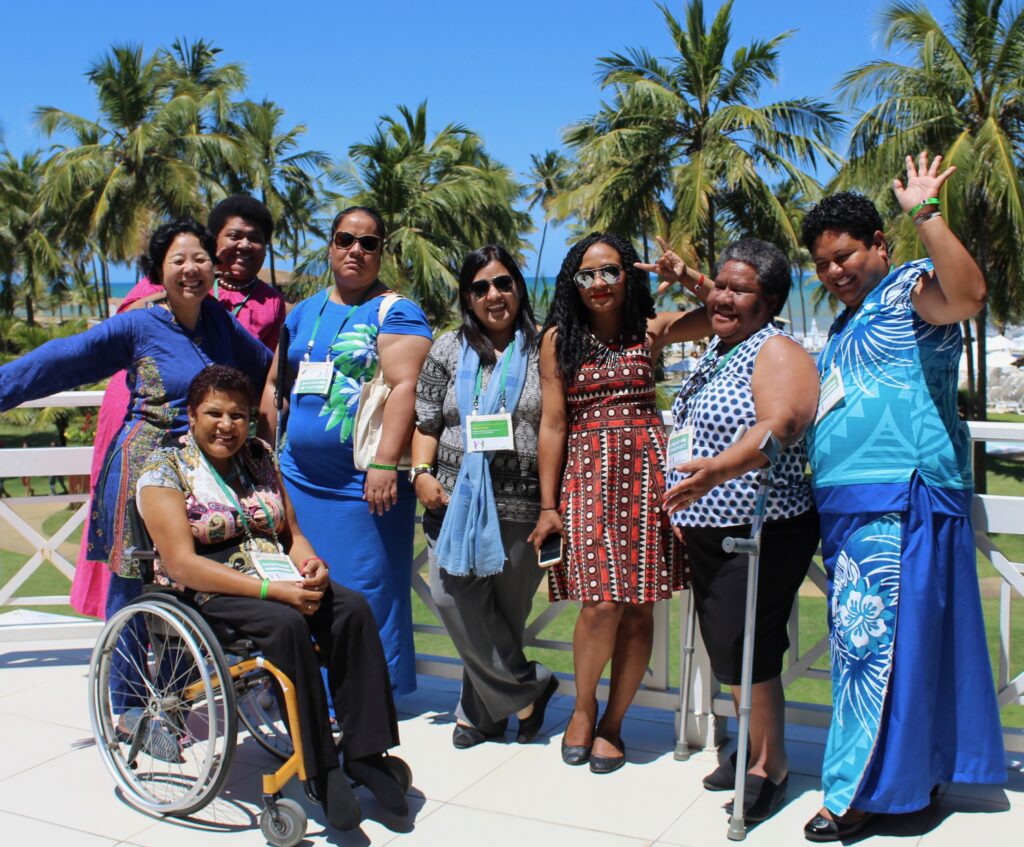Blog
Respect for Indigenous Persons with Disabilities

Everyone, including persons with disabilities, has multiple identities, and we all experience multiple forms of discrimination or privilege depending on these identities. Persons with disabilities are women; they are ethnic minorities; they are LGBTQI persons; they are indigenous; and they are impacted by intersecting forms of discrimination.
The Disability Rights Advocacy Fund’s (DRAF) grantmaking respects diverse perspectives to address these multiple forms of exclusion. Over half of our funding is directed to those who are marginalized because of intersecting social identities, such as women with disabilities and Indigenous persons with disabilities.
Our structure involves persons with disabilities at all levels, from advisory to staffing to governance. Our model of participatory grantmaking puts decision-making about strategy and grants in the hands of diverse disability rights activists, who have the expertise and perspectives that funders typically do not have. Our grantmaking models the inclusive society we aim to achieve. “Bridge builders,” like Indigenous leader Mirna Cunningham on our Global Advisory Panel gives us the opportunity to learn across movements.
Connecting people, beliefs, and actions by building cross movements holds up the value of reciprocity — being open to learning from others. Last September, we supported Indigenous women with disabilities from the Pacific and Nepal to participate in the AWID conference in Brazil, which highlighted the perspectives of diverse groups, including a very visible group of women with disabilities. As a result of their participation, Nellie Caleb, co-chair of the Pacific Disability Forum and the Disability Promotion and Advocacy Association (Vanuatu), was “inspired to strengthen alliances with other women’s groups in the broader women’s movement.”
Responsibility in philanthropy recognizes that Indigenous Peoples should speak for themselves and be responsible for their own voice in meetings, in negotiations, and on issues. IFIP encourages funders to be familiar with the UN Declaration of Rights for Indigenous Peoples. One of the ways the Disability Rights Advocacy Fund practices responsibility is by our long-term support for the Indigenous Persons with Disabilities Global Network, through the International Disability Alliance. The network supports Indigenous persons with disabilities themselves to lead advocacy on the rights of Indigenous persons with disabilities in global and regional arenas, including at the UN Permanent Forum on Indigenous Issues (UNPFII).
As Pratima Gurung, Disability Rights Fund Global Advisor, said, “Indigenous women with disabilities believe that the violence and discrimination we face should not make us vulnerable and passive. We should raise our collective voices to be heard and demand our rights.”
Voices and actions of Indigenous persons with disabilities led to the establishment of a Disability Caucus within the UNPFII; among the results is an expert report which made recommendations to the UN using both the UN Convention on the Rights of Persons with Disabilities and the UN Declaration on the Rights of Indigenous Peoples. A key partner in our work supporting Indigenous persons with disabilities is the Australian Government Department of Foreign Affairs and Trade.
As funders, here are some questions to explore using the 4R’s of Indigenous Philanthropy:
- Respect: What are the approaches to respect diverse identities and ways of life, and how can processes be more transparent, open, adaptable, flexible, and ACCESSIBLE—for example accessible communication materials and meeting venues?
- Reciprocity: How can funding encourage connections between the Indigenous Peoples’ movement and the disability rights movement?
- Responsibility: How can grantmaking ensure that diverse voices among Indigenous Peoples are heard – including women, persons with disabilities, children, and elderly people, as well as people from different socio-economic backgrounds?
- Relationships: How can we work together to encourage mutual learning and mutual respect?
We believe that it is critical to work across rights movements and to counteract traditional differences between human rights actors as we come together for change. We welcome connections to expand the global movement addressing issues, like climate change and gender equality, that are important to all Indigenous Peoples.
This blog first appeared in the newsletter of the International Funders for Indigenous Peoples.
Yumi Sera, Director of Partnerships and Communications, the Disability Rights Fund and Disability Rights Advocacy Fund and Board Co-Chair, International Funders for Indigenous Peoples